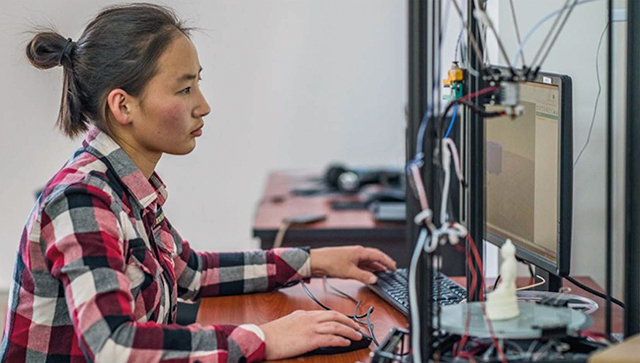As we transition from the pandemic to a new normal marked by renewed globalization, we must work to strengthen regional cooperation through digitalization. – ADB President Masatsugu Asakawa
A coordinated response to public health challenges and closer regional cooperation enabled by digitalization are crucial to recovering from the coronavirus disease (COVID-19) pandemic, participants at the 20th Central Asia Regional Economic Cooperation (CAREC) Ministerial Conference heard on November 17.
“As we transition from the pandemic to a new normal marked by renewed globalization, we must work to strengthen regional cooperation through digitalization,” said ADB President Masatsugu Asakawa in his keynote address. “This will allow us to build resilience to future crises, restore trade, and emerge stronger, more connected, and more inclusive, and the CAREC Program will play a vital role in enabling this.”
At the virtual event themed ‘Connectivity, Cooperation, and Resilience in a Digital Era,’ ministers from Azerbaijan, the People’s Republic of China, Georgia, Kazakhstan, the Kyrgyz Republic, Mongolia, Pakistan, Tajikistan, Turkmenistan, and Uzbekistan endorsed new long-term strategies to promote digitalization and strengthen health systems through regional cooperation.
The CAREC Digital Strategy 2030 will encourage investments in digital infrastructure in the region, where about half of the population remains without internet access. The strategy aims to develop digital skills to create jobs, including for women and vulnerable populations, expand business opportunities, particularly in e-commerce, and create interoperable digital platforms.

The CAREC Health Strategy 2030 aims to improve member countries’ capacity to respond to public health threats through effective surveillance systems and ensuring that sufficient laboratory infrastructure is in place. It seeks to establish reliable regulatory and procurement mechanisms to ensure sufficient medical supplies are available to meet surges in demand. It also outlines actions to improve health services for migrants, border communities, and vulnerable groups.
Hosted by the Government of Azerbaijan, the conference was co-chaired by Minister of Economy Mikayil Jabbarov and ADB Vice-President Shixin Chen. Ministers and senior officials from CAREC member countries attended the event, as well as representatives from development partners.
“Digitalization and the associated transformation of the economy will serve as a tool for further enhancement of regional cooperation,” said Mr. Jabbarov in his welcome address. “CAREC Digital Strategy 2030 will contribute to the changes initiated by our country’s leadership. As CAREC chair for 2021, I want to express Azerbaijan’s commitment to continue the promotion of stronger regional cooperation and integration.”
In a joint statement, the ministers commended the CAREC Program for adapting to the challenges of the Covid-19 pandemic and noted the progress in strengthening economic resilience in the region, improving the investment climate, and facilitating trade, among other priority areas.
As a high-level strategy and policy body, CAREC promotes economic growth and sustainable development through cooperation among its member countries, supported by development partners.
Since 2001, CAREC-related financing amounted to $40 billion for 213 regional projects including $15 billion from ADB; $16 billion from other development partners; and $9 billion from CAREC governments. The projects have helped to increase road and railway efficiency, streamline border-crossings, and improve access to energy for millions of people. ADB is the secretariat of the CAREC Program.
ADB is committed to achieving a prosperous, inclusive, resilient, and sustainable Asia and the Pacific, while sustaining its efforts to eradicate extreme poverty. Established in 1966, it is owned by 68 members—49 from the region.














